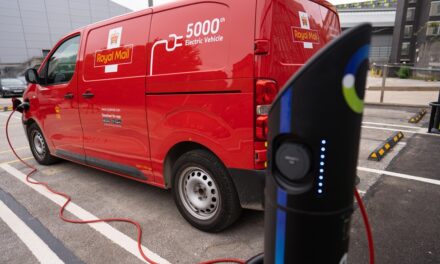
Future technological evolution within postal automation
I have worked in the area of postal technology for Royal Mail for 25 years. During that time the technology used within the postal business has changed considerably. However, the change has been more evolution than radical re-engineering. For example, someone who was familiar with a letter sorting machine of 25 years ago would recognise today’s products. Of course the machines of today have far more features and process mail considerably faster, but essentially they still work in the same way.
One of the questions I am often asked is: What will postal technology look like in the future? Will we see evolution or will we witness radical change? The following is my view of the changes we will see.
The pace of change will accelerate
It is the need to change that will be the biggest influence on the future postal technology landscape. Most of the major postal businesses will be subject to competition and there is nothing like competition to focus the mind on the need to change. In addition, it is likely that many of the mailpieces that are of value to our customers today will switch to alternative channels unless the mail product evolves quickly to create more value.
Information will be the new king
Information about mailpieces and information about the operation will in my view be the most significant change in the future. I believe that it will become the norm for customers to expect posts to tell them where each of their mailpieces in any mailing is at any one time, and when we have delivered them. The rest of the world will be increasingly information dominated so why does anyone believe this will not be the future for the postal world?
If we know where all the mailpieces are it is also reasonable to expect that all assets used within a postal operation will also be tracked, and this includes the people who work within the operation. This level of information may seem intrusive to many people but it will have to happen. It need not be feared, since it is how information is used and not the information itself that should be the issue.
The mindset of quality will change radically
Readers of this article who are familiar with today’s manufacturing industries will be amazed that it continues to be the postal industry norm for errors to be measured in failure of parts per hundred. To put this into perspective, whilst Royal Mail has made quite remarkable improvements in quality in the last few years, and our customers are very pleased by the progress we have made, there is still a chasm in expectations in the postal industry compared to what is the norm in manufacturing, where errors are measured in parts per million. Expect the mindset of postal operators to move towards their manufacturing counterparts.
Lean process design
The concept of lean process design and lean manufacturing is widespread. It is only starting to emerge in the postal world and it is inevitable that the postal operators who prosper will embrace lean principles. To put it simply, postal processes will be redesigned to eliminate wasteful (non value adding )activities and continuous improvement activities will become widespread as posts continuously strive to fine tune an already lean process to be even more lean and hence lower cost.
Some of the changes to lean design in a postal operation are very obvious when one critically examines a process for activities that do not add value.
Minimising machine rejects
Anyone familiar with today’s postal operations will recognise that many mailpieces fail to be processed following the lowest cost route. It is recognised that processing by machines will give the lowest cost but these machines, for numerous reasons, reject many mailpieces. Two examples are: failure to read a routing or ID tag code, and failure of an OCR and video coding system to resolve an address. Expect to see significant improvements in these areas in the near future since essentially they are “low hanging fruit” where postal operations can be improved by the application of technology. A good example is a new fluorescent coding ink recently developed within Royal Mail which is significantly brighter when viewed at high speed in a machine using UV lighting compared to conventional inks. It can therefore be read on difficult mailpiece backgrounds. As a result, rejects due to the failure to read a codemark have been reduced to very low levels. Equally expect the knowledge of addresses, and the cycle time to update postal databases used with postal automation, to progress to the stage where rejects due to the failure to read an address will be virtually unknown.
In summary, there are many operations performed today that do not have a cost effective automated solution. I expect the postal technology supply industry to rise to the challenge and provide technology solutions to all current manual mail processing operations.
The customer must become the focus
Postal businesses have historically been operations dominated. The majority of these businesses have been protected by a monopoly so the business mindset has been focused on running an operation and not on developing new or enhanced business propositions for customers. Will the postal business of the future still think with the operational mindset? I do not think so since if the mindset does not evolve the only future for these postal businesses will be decline and eventual extinction.
It is obvious that the customer in the future will want better products and better services than today. Expect as a minimum to see far closer integration of postal operations up and down the overall postal supply chain, and significant integration at an information level between customers, postal operators and mailpiece/package receivers.












